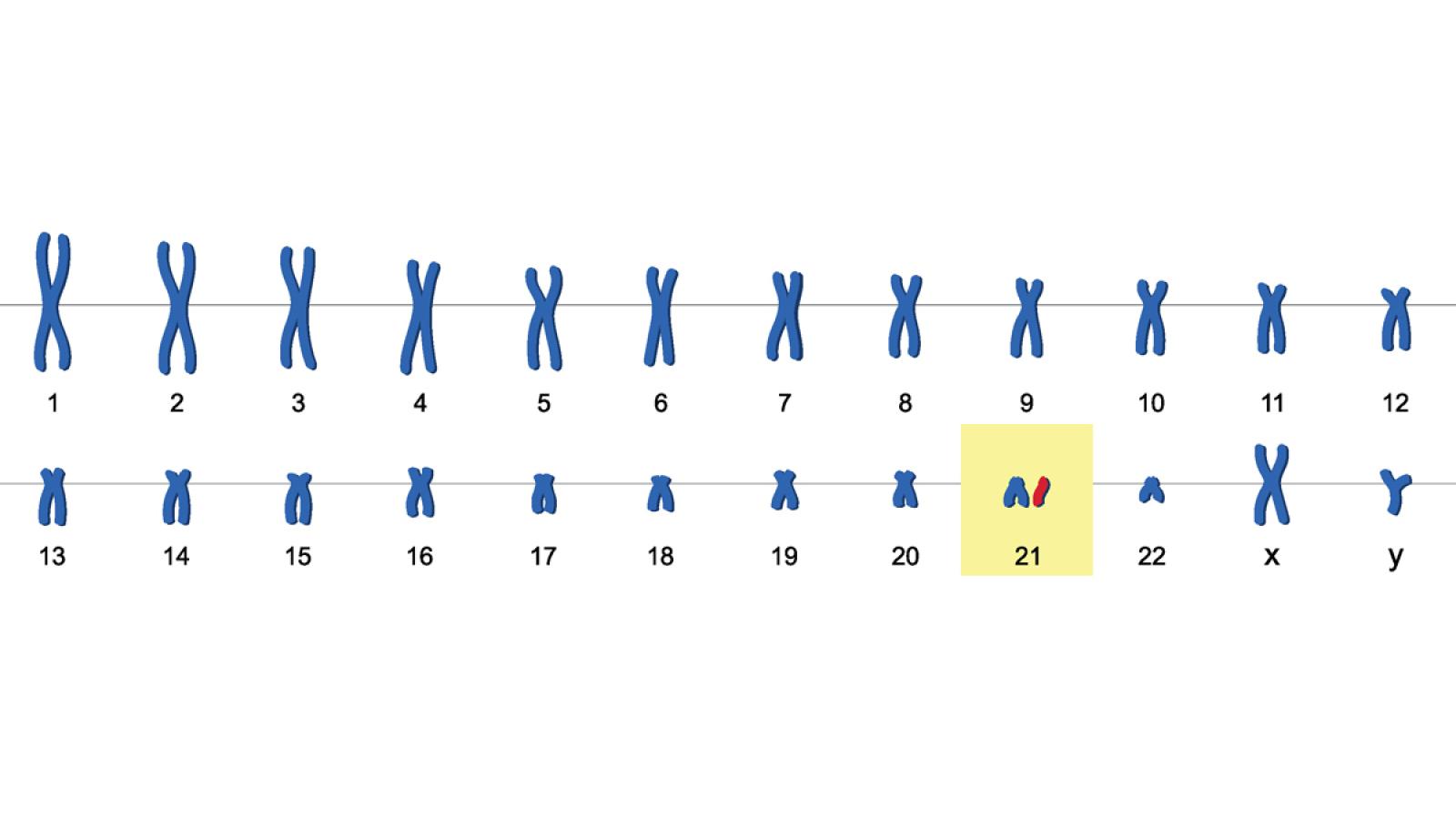Researchers led by Dr Frances Wiseman from UK DRI at UCL have shed more light on the causes of early-onset Alzheimer’s disease associated with Down syndrome. Pinpointing the genes responsible may lead to treatments that target this neurodegenerative condition in people with Down syndrome, as well benefiting those in the broader population.
There are approximately 6 million people living worldwide with Down syndrome – a condition characterised by developmental delay and mild to moderate intellectual disability caused by an extra copy of chromosome 21. It is also estimated that 60% of people with Down syndrome will be diagnosed with dementia by the age of 65, caused by early-onset Alzheimer’s disease.
The high risk of dementia associated with Down syndrome is thought to be linked to the extra copy of the gene for the amyloid precursor protein (APP), found on the triplicated chromosome 21. In the brain, APP is cleaved into several fragments including amyloid beta-42 which accumulates into plaques in Alzheimer’s disease. The third copy of the gene in Down syndrome causes greater levels of amyloid beta-42 to be produced and therefore a higher chance that an individual develops early-onset Alzheimer’s disease.
However, in 2018, Dr Wiseman and colleagues used animal models to show that other genes on chromosome 21 may be influencing the risk and could provide additional targets for therapeutics. The lab has expanded on this research in a new article published today (12 March) in the journal Scientific Reports, that identifies regions of chromosome 21 where these risk genes are located and their effects on characteristics such as mortality and aggregation of amyloid beta.
To achieve this, the team took four types of genetically altered mouse that each possessed an extra copy of distinct chromosome 21 subregions. They then bred each of these mice with a mouse model of Alzheimer’s disease (J20 APP) that develops aspects of the pathology seen in human disease. Using these new models, they successfully identified regions of chromosome 21 where harmful genes that caused increased aggregation of amyloid beta and increased mortality of the mice were located.
<p>of people living with Down syndrome are estimated to be diagnosed with dementia by the age of 65</p>
By identifying the genes and mechanisms that contribute to the early development of dementia in people who have Down syndrome, our research can support progress towards clinical trials looking at therapies which may prevent the onset of Alzheimer's in these individuals.Dr Frances WisemanUK DRI Programme Leader for Animal Models and lead on the study
People with Down syndrome additionally have an increased risk of dementia-associated seizures compared with individuals in the general population. The researchers also investigated this in the paper and have future plans to study the biological pathways underpinning dementia-associated epilepsy in Down syndrome and find ways to target and treat it.
The authors of the study note the limitations with using animal models, for example, some genes found in humans do not have an equivalent in mice or how genes from the separate regions modelled in this study will interact.
Find out more about the work of the Wiseman Lab at UCL or Frances’ role as Programme Leader for Animal Models in the UK DRI.
Reference
Tosh, J., Rhymes, E., Mumford, P., Whittaker, H., Pulford, L., Noy, S., Cleverley, K., Walker, M., Tybulewicz, V., Wykes, R., Fisher, E. and Wiseman, F., 2021. Genetic dissection of down syndrome-associated alterations in APP/amyloid-β biology using mouse models. Scientific Reports, 11(1). https://doi.org/10.1038/s41598-021-85062-3
Article published: 12 March 2021
Banner image: Ody_Stocker/Shutterstock.com
